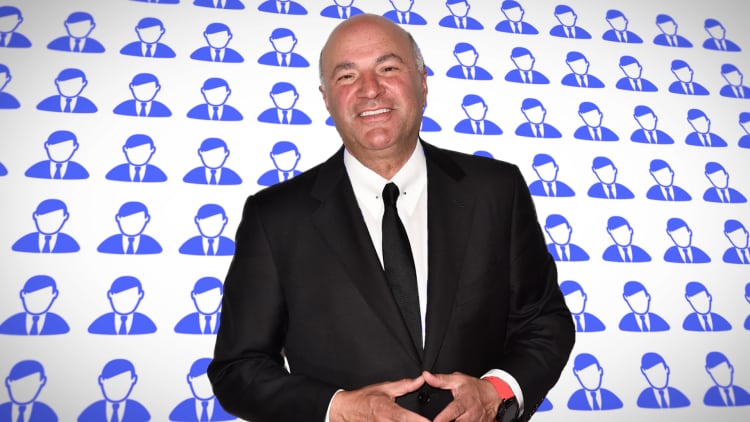Forget bug spray, on Sunday's episode of "Shark Tank" on ABC, two entrepreneurs pitched BatBnB, a product that attracts bats to people's backyards for mosquito control — and it scored a six-figure deal with Kevin O'Leary.
Harrison Broadhurst and Chris Rannefors' company BatBnB produces a product similar to a birdhouse, but for bats.
The idea of the bat house is to utilize the bats' taste for mosquitoes as a form of natural pest control, as well as a safe place for bats to stay.
Each bat house can be placed on a wall, shed, barn or pole in a person's yard, with an interior space that mimics the bat's natural habitat. Within the bat house, there's a landing pad and grooves that allow the bats to grip, climb and hang. Each bat house can fit between 80 to 100 bats.
But in the Tank, when the entrepreneurs explained to the Sharks that bats hunt at night, Kevin O'Leary interrupted with his own bat knowledge.
O'Leary said that when he was living in Tunisia as a teen (his stepfather, George Kanawaty, moved the family there for his work), he remembers the bats would come out at dusk and blanket the sky. Then O'Leary pointed out that some bats feed on blood.
As the other Sharks cracked up over O'Leary's surprising bat expertise, the founders pointed out that the Vampire Bats O'Leary is talking about only live in Central and South America.
The founders got the idea for the company in 2016, when the Zika virus — transmitted through mosquito bites — was making headlines, but most of the bug control products they found on the market were pesticides. As a kid though, Rannefors had built bat houses with his father, and he said he learned that bats can eat up to 1,000 mosquito-sized insects per hour (though this seems to be in dispute).
BatBnB was born.
The co-founders launched on a crowdfunding campaign to get started. In less than a year the company had done $135,000 in revenue, according to the co-founders. The entrepreneurs said they believed there was high-growth potential in the public sector, where counties spend tons of money on pest control.
Not all of the sharks were convinced. Robert Herjavec saw it as a hobby market and passed, while Mark Cuban didn't think the business would be big enough to be worth his time. Daymond John said he had bats on his properties and hadn't noticed improvements with mosquitoes, and bats just plain freak out Lori Greiner.
But O'Leary was on-board. "I on the other hand have a lot of passion for bats, because they're so misunderstood over the ages, " he said.
While the entrepreneurs were seeking $100,000 for a 16% stake in the business, O'Leary offered $100,000 for a 33.3% stake. The entrepreneurs countered with a 25% stake, but O'Leary did not budge. The entrepreneurs accepted O'Leary's offer.
Don't miss: 'Shark Tank': Kids of 9/11 firefighter get their late dad's invention a deal with Williams Sonoma
Like this story? Subscribe to CNBC Make It on YouTube!
Disclosure: CNBC owns the exclusive off-network cable rights to ABC's "Shark Tank."



